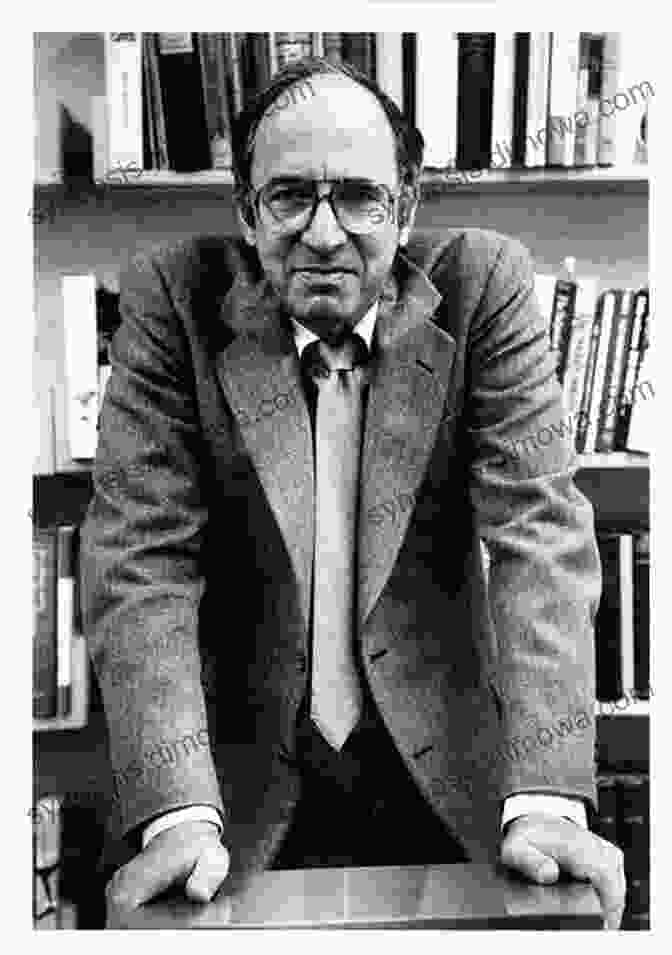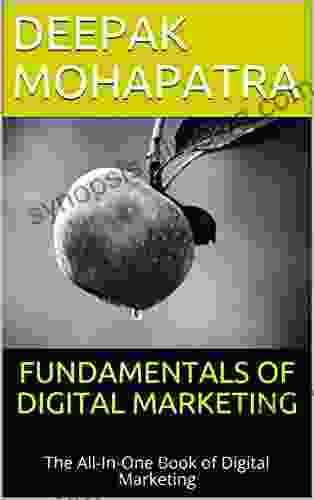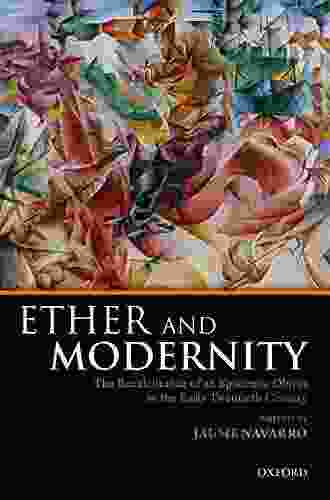The Recalcitrance of an Epistemic Object: Unraveling the Complexities of Scientific Knowledge in the Early 20th Century

In the annals of scientific thought, the early 20th century stands as a pivotal era marked by groundbreaking discoveries and profound shifts in our understanding of the world. Amidst this intellectual ferment, a seminal book emerged, challenging the very foundations of our knowledge and forever altering the landscape of epistemology and the philosophy of science.
The Enigmatic "Epistemic Object": A Catalyst for Scientific Revolution
The book, aptly titled "The Recalcitrance of an Epistemic Object in the Early Twentieth Century," delves into the enigmatic nature of scientific knowledge, probing the intricate relationship between theory and observation, objectivity and subjectivity, and the ever-elusive search for truth.
4.3 out of 5
| Language | : | English |
| File size | : | 4119 KB |
| Text-to-Speech | : | Enabled |
| Screen Reader | : | Supported |
| Enhanced typesetting | : | Enabled |
| Word Wise | : | Enabled |
| Print length | : | 272 pages |
| Lending | : | Enabled |
At the heart of the book's exploration lies the concept of an "epistemic object"—a term coined by Polish physician and philosopher Ludwig Fleck to describe the complex interplay of knowledge, social factors, and the scientific community.

Ludwig Fleck: Challenging the Ivory Tower of Science
Fleck, a visionary thinker ahead of his time, argued that scientific knowledge is not an isolated, objective pursuit but rather a deeply social and context-dependent endeavor. He contended that the epistemic object, far from being a passive recipient of scientific inquiry, actively shapes the very knowledge we produce.
Through meticulous historical analysis, Fleck traced the evolution of scientific understanding in fields ranging from medicine to astronomy, revealing the profound influence of social factors, cultural biases, and the interplay of different scientific communities.
The Paradigm Shift: A Copernican Revolution in Scientific Thought
Fleck's ideas found a profound resonance in the work of another intellectual titan of the 20th century: Thomas Kuhn. In his groundbreaking book "The Structure of Scientific Revolutions," Kuhn elaborated on Fleck's concept of the epistemic object, introducing the revolutionary notion of a "paradigm."

According to Kuhn, scientific paradigms are shared conceptual frameworks that guide scientific research and determine what is considered "normal" science. However, these paradigms are not static but rather undergo periodic revolutions, leading to fundamental shifts in our understanding of the world.
Kuhn's theory of paradigm shifts challenged the traditional view of science as a linear progression of knowledge accumulation. Instead, he proposed a more dynamic and disruptive model, where scientific knowledge is constantly evolving and redefining itself.
Objectivity under Scrutiny: The Subjective Nature of Scientific Truth
The Recalcitrance of an Epistemic Object" and "The Structure of Scientific Revolutions" together shattered the illusion of scientific objectivity. They demonstrated that scientific knowledge is not an absolute truth but rather a provisional and constantly evolving understanding of the world, shaped by both objective data and subjective factors.
This revelation had profound implications for the philosophy of science and our understanding of the nature of reality. It challenged the traditional Cartesian dualism of mind and matter, suggesting that the human mind is an integral part of the scientific process.
Implications for Modern Science and Beyond
The legacy of "The Recalcitrance of an Epistemic Object" and "The Structure of Scientific Revolutions" continues to resonate in contemporary scientific thought. These works have transformed our understanding of the dynamics of scientific knowledge production, the role of social factors in shaping scientific inquiry, and the complex relationship between objectivity and subjectivity.
Their insights have also influenced fields beyond science, from history and sociology to psychology and education. They have challenged us to question the nature of knowledge itself and to embrace a more nuanced and reflexive understanding of the human quest for truth.
Delve into the Labyrinth of Scientific Knowledge
If you seek a profound exploration of the complexities of scientific knowledge, a journey into the depths of epistemology and the philosophy of science, then "The Recalcitrance of an Epistemic Object in the Early Twentieth Century" and "The Structure of Scientific Revolutions" are essential reading.
Prepare to have your assumptions challenged, your understanding expanded, and your perspective on the world transformed. Embark on an intellectual odyssey that will forever alter your perception of science and the pursuit of knowledge.
4.3 out of 5
| Language | : | English |
| File size | : | 4119 KB |
| Text-to-Speech | : | Enabled |
| Screen Reader | : | Supported |
| Enhanced typesetting | : | Enabled |
| Word Wise | : | Enabled |
| Print length | : | 272 pages |
| Lending | : | Enabled |
Do you want to contribute by writing guest posts on this blog?
Please contact us and send us a resume of previous articles that you have written.
 Book
Book Novel
Novel Page
Page Chapter
Chapter Text
Text Story
Story Genre
Genre Reader
Reader Library
Library Paperback
Paperback E-book
E-book Magazine
Magazine Newspaper
Newspaper Paragraph
Paragraph Sentence
Sentence Bookmark
Bookmark Shelf
Shelf Glossary
Glossary Bibliography
Bibliography Foreword
Foreword Preface
Preface Synopsis
Synopsis Annotation
Annotation Footnote
Footnote Manuscript
Manuscript Scroll
Scroll Codex
Codex Tome
Tome Bestseller
Bestseller Classics
Classics Library card
Library card Narrative
Narrative Biography
Biography Autobiography
Autobiography Memoir
Memoir Reference
Reference Encyclopedia
Encyclopedia David Bailin
David Bailin Michael G Lynch
Michael G Lynch Nelson Erikson
Nelson Erikson Krista Jolivette
Krista Jolivette David Margolick
David Margolick Miguel Morales
Miguel Morales David Brown
David Brown Zeina Abirached
Zeina Abirached David Weir
David Weir David L Kaupp
David L Kaupp Ryan Dalton
Ryan Dalton David Ireland
David Ireland David Zierler
David Zierler David Hulac
David Hulac Dawn E Trussell
Dawn E Trussell Matt Spruill
Matt Spruill David Veech
David Veech Deborah Iida
Deborah Iida J Y Jones
J Y Jones Susan Arrington Madsen
Susan Arrington Madsen
Light bulbAdvertise smarter! Our strategic ad space ensures maximum exposure. Reserve your spot today!

 Jake CarterDelve into True Crime's Darkest Depths: The State's Most Notorious Criminal...
Jake CarterDelve into True Crime's Darkest Depths: The State's Most Notorious Criminal... Melvin BlairFollow ·7.1k
Melvin BlairFollow ·7.1k Johnny TurnerFollow ·4.7k
Johnny TurnerFollow ·4.7k Davion PowellFollow ·16.3k
Davion PowellFollow ·16.3k John KeatsFollow ·6.8k
John KeatsFollow ·6.8k Ibrahim BlairFollow ·3.7k
Ibrahim BlairFollow ·3.7k Shaun NelsonFollow ·6.7k
Shaun NelsonFollow ·6.7k Dalton FosterFollow ·9.8k
Dalton FosterFollow ·9.8k John SteinbeckFollow ·13.7k
John SteinbeckFollow ·13.7k

 Aron Cox
Aron CoxMastering Project Management: The Ultimate Guide to...
In today's competitive...

 Dominic Simmons
Dominic SimmonsLet's Build Sue Fliess: Unleash the Polychrome Master...
Chapter 1: The...

 Mason Powell
Mason PowellMaster the Digital Marketing Landscape: Fundamentals of...
In the age of digital...

 Aubrey Blair
Aubrey BlairUncover the Secrets of Ancient Blades and Enchanting...
Embark on an Enchanting Journey into the...

 Shannon Simmons
Shannon SimmonsUnleash the Spooktacular with Spooky Crochet Tutorials...
Prepare to be spooked...

 Cade Simmons
Cade SimmonsImmerse Your Little Ones in a World of Enchantment with...
Nursery rhymes have forever ignited the...
4.3 out of 5
| Language | : | English |
| File size | : | 4119 KB |
| Text-to-Speech | : | Enabled |
| Screen Reader | : | Supported |
| Enhanced typesetting | : | Enabled |
| Word Wise | : | Enabled |
| Print length | : | 272 pages |
| Lending | : | Enabled |










